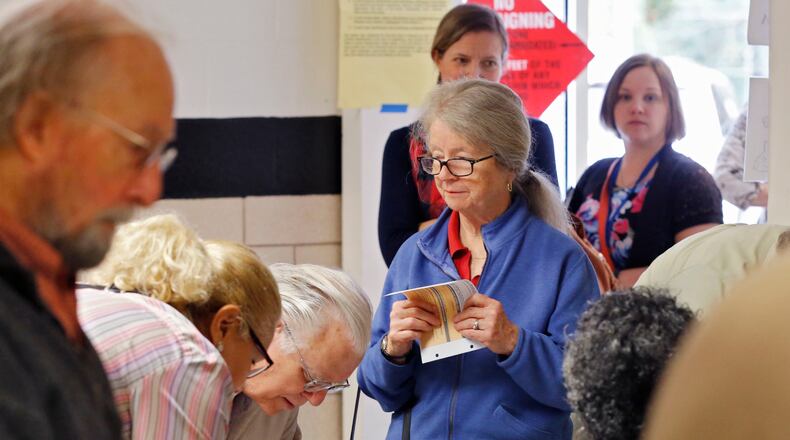The tight vote against creating the city of LaVista Hills will stand.
Cityhood supporters decided Thursday that they won't contest their 139-vote defeat in court. A legal challenge was the last opportunity to try and overturn the Nov. 3 referendum's results, according to the Georgia Secretary of State's Office.
LaVista Hills Alliance, a pro-cityhood group, announced it will instead turn over information about voting irregularities to state authorities.
An ongoing investigation by Secretary of State Brian Kemp and the GBI could eventually result in fines or prosecutions, but it won’t change the outcome of the election.
“We have the utmost confidence in the Secretary of State’s Office to get to the bottom of this,” said Mary Kay Woodworth, president of LaVista Hills Alliance. “We just want to know if we had a fair and honest election.”
Woodworth said she’s heard complaints about locked precinct doors, an unsecured voting machine memory card, absentee ballots never being sent to military personnel and ballots omitted from official vote counts.
DeKalb County election officials acknowledged Monday that they didn't initially count 41 provisional ballots, 19 of which were in LaVista Hills. They then added those votes to the total and recertified the election. As a result, the referendum's margin of defeat grew by three votes.
The findings of the state investigation will be turned over to the State Elections Board, which has the ability to recommend prosecutions or financial penalties against the county, said David Dove, an attorney for the Secretary of State’s Office.
LaVista Hills fell short by 1 percent of 13,733 votes cast.
Georgia law requires election challenges to be filed in court within five days of the election’s certification.
Woodworth said it would have been difficult to prove in court that the election’s results were invalid, and a legal challenge would have been expensive.
Ron McCauley, who opposed the cityhood effort, said the voters have spoken.
“We’re better off working together than spreading into factions and groups,” he said. “Let’s not create another government that needs oversight. Let’s deal with the one we have now.”
LaVista Hills would have been a city covering more than 67,000 residents from outside Emory University to I-285.
Though LaVista Hills failed, 74 percent of voters supported forming a city of Tucker. When Tucker incorporates next year, it will include more than 33,000 residents from the Perimeter to the outskirts of Stone Mountain.
About the Author
Keep Reading
The Latest
Featured




